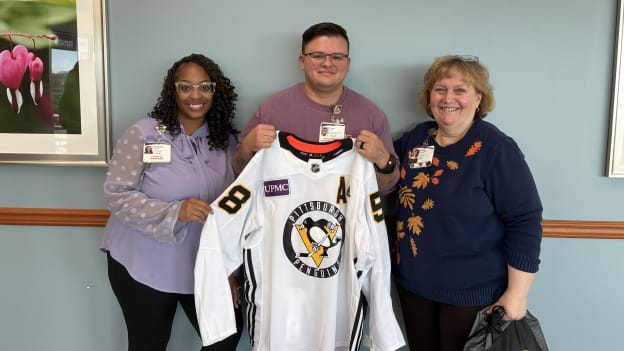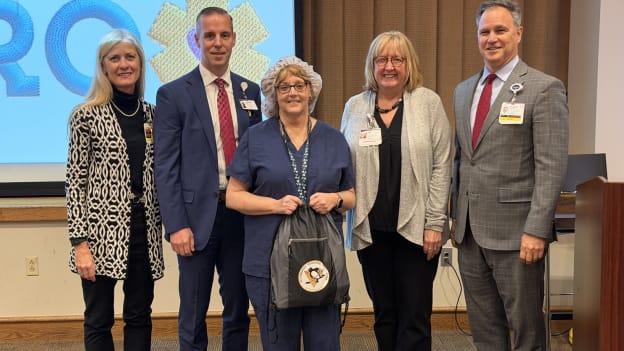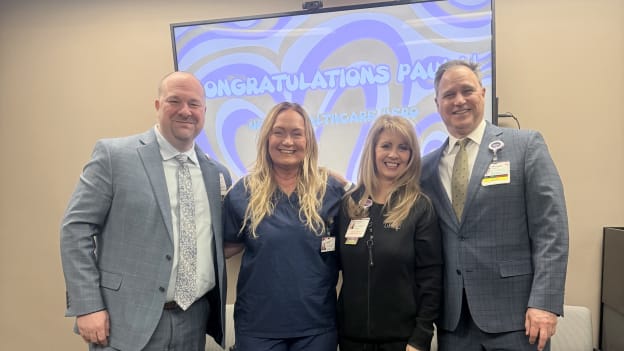Growing up, Liam Taylor never had a specific answer when people asked him what he wanted to do when he was older.
“It was always, ‘I just want to help people,’” Liam says.
As he grew older, he realized he had a passion for helping people with drug and alcohol addiction, mental health struggles, and other burdens. He’s brought that passion into his work as a discharge planning associate in the UPMC Passavant emergency department.
For his dedication to helping patients in need, Liam is the recipient of this month’s UPMC Pittsburgh Penguins Healthcare Hero Spotlight.
In his role, Liam works with patients and their families to coordinate care that they may need upon leaving the hospital.
Before he began working in the emergency department in October, he worked for nearly three years on a medical-surgical floor. There, his days could include anything from helping connect people with housing resources or Medicare to helping with dialysis treatments.
In the emergency department, Liam’s work focuses more on helping people with drug and alcohol addictions and mental health burdens. Drug- and alcohol-related emergency department visits have increased significantly in recent years across the United States.
“It's hard to watch, especially when people don't want help,” Liam says. “But you're there if they need you, and when they're ready, they're ready. So, hopefully, for a lot of people, they're able to come back, and I can help them.”
The work aligns with Liam’s passions. Before coming to UPMC, he did community work in helping people with drug and alcohol problems and mental health issues. He is also pursuing a master’s degree in social work.
In addition to helping people get connected to resources such as detox programs, Liam also spends time with patients and listens.
“A lot of times, there's still a lot of stigma, and there's still a lot of judgment,” Liam says. “And I want to try to be the person who talks to them without that judgment and try to get people the help they need.”
Liam’s ability to connect with patients earned him a UPMC Above and Beyond Award for exemplary care.
“Liam thinks of the whole person,” says Pamela Kusserow, director of Clinical Care Coordination and Discharge Planning at UPMC Passavant. “He takes time to listen to his patients and involve them in the planning process.
“Liam is very approachable,” she adds. “He is calm in a crisis and usually able to build rapport with any patient.”
In addition to talking and listening to patients, Liam also connects them with community resources. He says he creates custom packets of resources based on an individual’s needs.
“In my experience, people tend not to want to look through a booklet of stuff for one page that might apply to them,” Liam says. “So, I try to do that, and then I sit there and I go through them all with them.
“But also, if they'll let me, I usually try to make people appointments before they leave. So, get them therapy appointments or get them an appointment at a clinic if they need it.”
Liam says he also hopes to educate people about the underlying causes of drug and alcohol addiction to reduce stigma.
Although Liam says his work can be difficult and discouraging sometimes, it makes him happy when a patient gets the help they need.
“(Cases) where I’m actually able to make some kind of difference, it helps keep me coming back for the days that don’t go so well,” Liam says. “That kind of stuff is what brings me back.”




